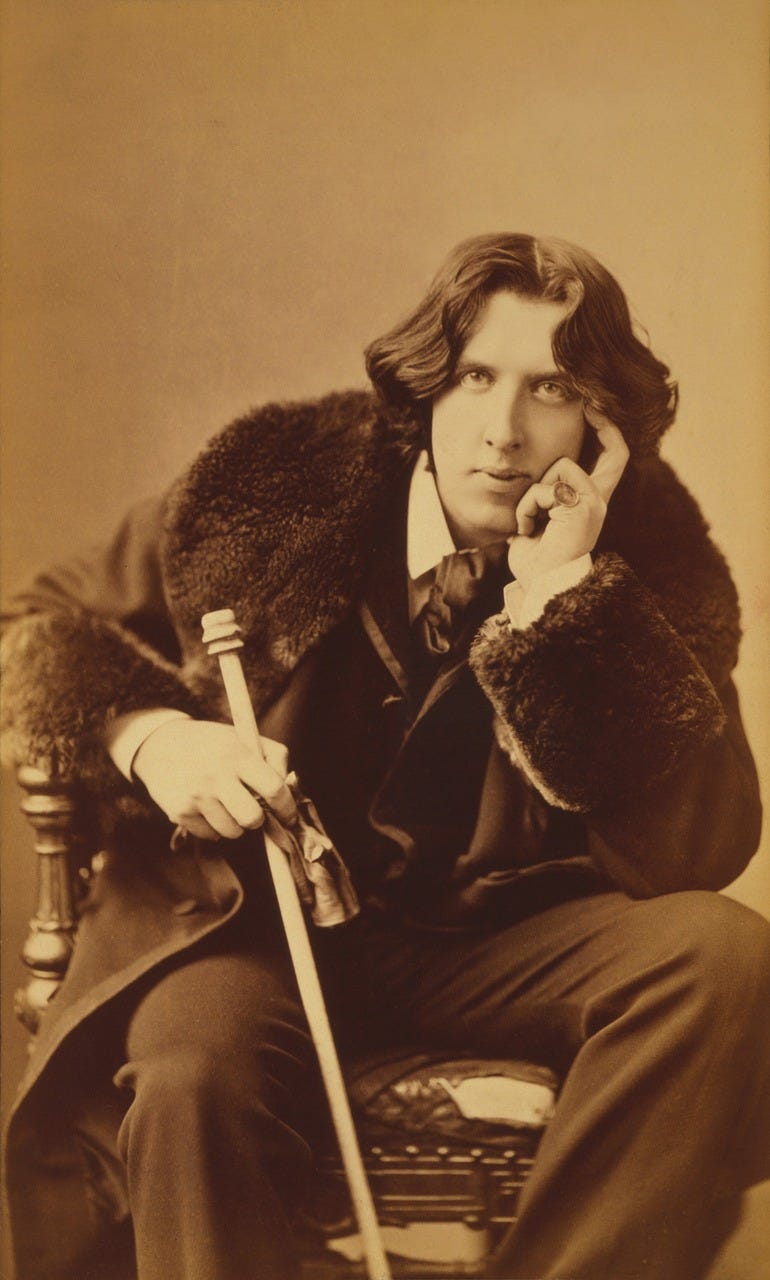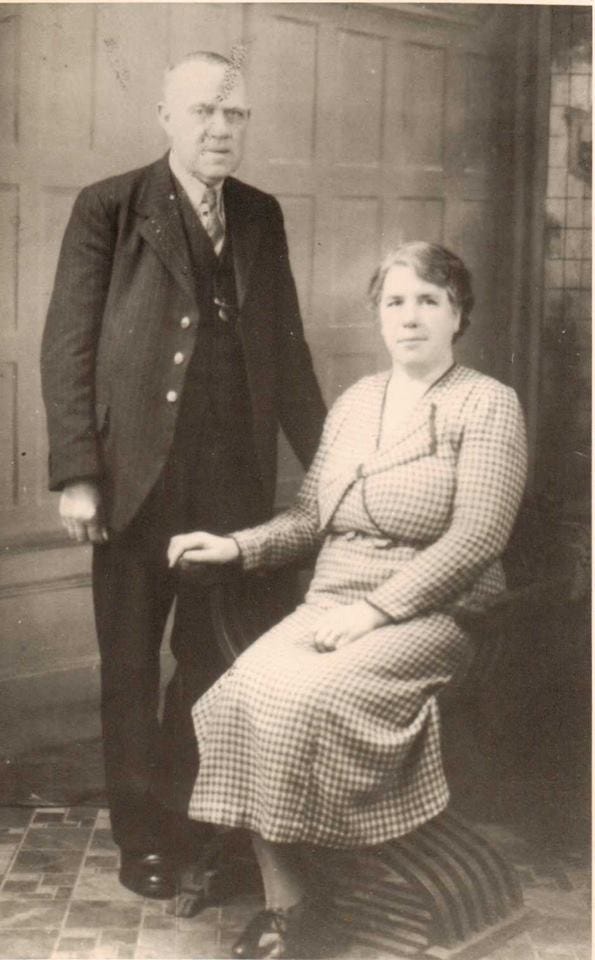
I once had this photograph of Tom Wetherill the great-grandfather whom I never met; his gradson Billy was my father. In the photograph – which alas I have mislaid, this Tom is about 19 years old, with a handsome full face and huge smiling eyes. He’s wearing a white wing collar and a long evening coat. Very Oscar Wilde.
His son, also Tom Wetherill, had great charm. My mother Barbara called her father-in-law ‘the old man’ and had great affection for him. She loved the lost photograph because he had a touch of class with its hints of better things. The photograph also backed up the story of how he – therefore we - came from better things. Even in our poorest times she was nothing if not aspirational.
Great grandfather Tom Wetherill’s father was an affluent auctioneer and valuer from Ripon in North Yorkshire. And the Wetherill family lived on one of the better streets in the centre of that cathedral town. This Tom was very clever boy and the legend in his Ripon grammar school report was often quoted to me: remarkably clever but abominably lazy. Reflecting on this now, I think he was to like he was like a dreamer like me – indeed a romancer.
I think this Tom must have worked for his father for a time. But then the story alleges that when Tom was 17 his parents died, and he and his sister were each left £3,000. According to the Bank of England, based on CPI (Consumer Price Index), in present-day values this is the equivalent of £218,000. My mother told me that by the time this Tom was 21 years old, little was left of that sum which was by any reckoning an enormous sum of money. How did Tom Wetherill manage this difficult feat of losing it, you may say?
I have no record of this, oral or otherwise. I suppose he could have been swindled or defrauded. But I feel the reason for this great loss was due to a certain weakness that has come down through the generations. There is this gambling streak in this family. It’s not impossible that this Tom went off to London or even Monte Carlo and tried the tables. From the young photo which alas is now lost, he looks flamboyant enough.
The next Tom Wetherill - was a gambler; his son Billy - my father- was a gambler; my late, much-loved brother (also Tom…) was also a gambler. What about me then? When you think of it, assuming one can write for a living is a bit of a gamble in itself. Each novel I have written has been a bit of a gamble.
As well as that I am prone to taking leaps in the dark. Deciding to work in prison was one these feats. That could have been risky but turned out to be an intensely rewarding experience.
I don’t really know what my grandfather Tom Wetherill did after his father lost his money. But I do know that after some years he ended up working in an asylum called Winterton in County Durham. I’ve written about that here, from time to time. On his wedding certificate he is called an Asylum Attendant.
This was the same hospital where, many years later, I wrote of being up a ladder putting up the Christmas decorations.
In time this Tom became chief male attendant. I think they didn’t call them nurses in those days. At that time the staff – including - the doctors lived on the site, in houses and cottages on the perimeter, of what was effectively a large purpose-built institution. It was at The Hospital that Tom met his wife Elizabeth who was on the domestic staff.
She once told me, ‘He chased me around the table in the hospital kitchen until I caught him.’
My father Billy and his sister Alice (always called Mim) - she of the cream cakes from the day when Billy died) - were born at the Hospital. They are both clever and both of them went to the Stockton Grammar School. He missed out on schooling because he was asthmatic and proceeded to an electrician’s apprenticeship at the hospital.
This hospital was, for its time, very progressive. It had all kinds of social events – dances concerts, the drama group, sports teams, chess clubs in which both patients and staff participated. Some years ago, I talked to two elderly women who had worked at the hospital at that time. They remember Tom, my grandfather, and said how much they liked him. He was - they said - a true gentleman. He was kind and good at his job. He could play the piano and they enjoyed many events in grandparents’ hospital house in the square called The Cottages. They recalled with affection a New Year’s Eve when the staff living in the Cottages joined forces and drank in each other’s houses as they moved from house to house.
As I write this, I’m wondering if at these house parties if Tom played the piano and my grandmother Elizabeth sang. What I discovered much later it was an ancient Durham “Mummers Play” normally performed in houses on New Year’s Eve. She had this song off by heart.
I quote it here as I learned it from her as a child.
In steps King George!
King George is my name.
with sword and pistol by my side
I hope to win the game.
The game sir? The game sir!
Take your sword and try sir!
Oh dear oh dear what have I done?
I killed my father’s only son!
Send for the five-pound Doctor.
There is no five-pound Doctor.
Send for the ten-pound Doctor.
In comes good old Dr Brown
the best old doctor in the town.
What can you cure?
’A dead man to be sure!
I have a little bottle in my inside pocket.
that goes to tick-tock,
rise up dead Jack!’
’Oh, my brothers come alive again.
we’ll never fight no more.
We’ll be the greatest brothers
that we ever were before.
With a pocket full of money
and a barrel full of beer
I wish you a Merry Christmas
and a Happy New Year.
The roads are very clarty
my boots are very thin, but
I’ve got a little pocket for
to put my pennies in.
If you haven’t got a penny
ha’penny will do.
If you haven’t got a ha’penny
Well, God bless you!
Wx
Edit: A great discovery!
Due to the wonders of Sustack, and my sister’s daughter Elizabeth, the pictures have now surfaced!








I enjoyed this slice of colourful life so much!